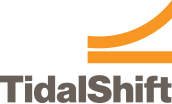LT 170 | Length: 1 day | Credits: 7 PDUs
Overview
Have you ever found yourself in a situation where…
- You needed to solve a tough customer issue?
- You had to make a major purchase?
- You had to assign chores in the family?
In the past few decades, psychologists and business people alike have discovered that successful problem solvers tend to use the same type of process to identify and implement the solutions to their problems. This process works for any kind of problem – large or small.
Learning Objectives
This workshop will give participants some processes and tools to make their problem solving effective and creative, and to help them create win-win situations.
Audience
Any individual who wants to improve his or her problem solving skills can benefit. This course is especially valuable for members of a team, including team leaders.
Content Outline
The Problem-Solving Method
- Information Gathering
- Problem Definition
- Generating Possible Solutions
- Analyzing the Solutions
- Selecting the Best Solution(s)
- Planning the Next Course Of Action (Next Steps)
Information Gathering
- Understanding Types of Information
- Identifying Key Questions
- Methods of Gathering Information
Problem Definition
- Identifying the Problem
- Determining Where the Problem Originated
- Defining the Present State and the Desired State
- Stating and Restating the Problem
- Analyzing the Problem
- Writing the Problem Statement
Preparing for Brainstorming
- Identifying & Removing Mental Blocks
- Stimulating Creativity
Generating Solutions, Part One
- Brainstorming Basics
- Brainwriting and Mind Mapping
- Duncker Diagrams
- The Morphological Matrix
- The Six Thinking Hats
- The Blink Method
- Developing Criteria
- Analyzing Wants and Needs
- Using Cost/Benefit Analysis
- Using Force-Field Analysis
- Using Risk/Reward Matrix
Selecting a Solution
- Doing a Final Analysis
- Paired Comparison Analysis
- Analyzing Potential Problems
- Developing Scenarios and Contingencies and Managing Risks
- Where to Look for Possible Risk Events
- Process
- Guidelines
- Key Points
Planning Your Next Steps
- Identifying Tasks
- Characteristics of Successful Planning
- Self-Assessment: Are You Planning?
- How is Your Planning?
- The Planning Horizon
- Estimating
- Modified Delphi Technique
- Mapping Out Milestones
- Determining Priorities
Self-Assessment: What Are Your Priorities?
- Knowing Your Priorities
- Prioritizing the Priorities
- Prioritizing Triple Constraints
- Identifying Resources
RASCI
- Implementing, Evaluating, and Adapting
- Monitor and control Process
- Levels of Tracking
- Performance and Trend Analysis
- Earned Value Analysis
Recording Lessons Learned
- Planning the Follow-Up Meeting
- Celebrating Successes
- Identifying Improvements
